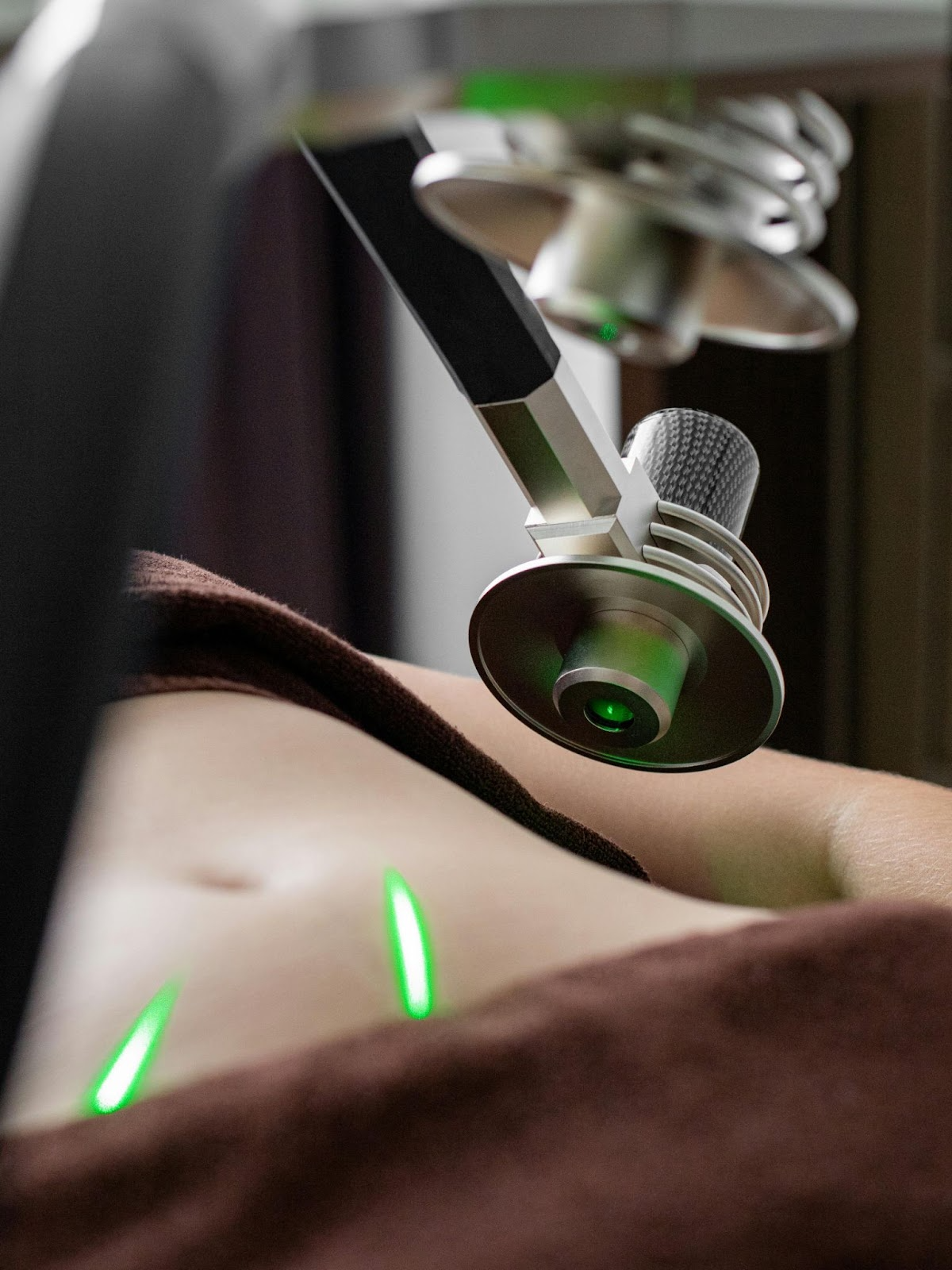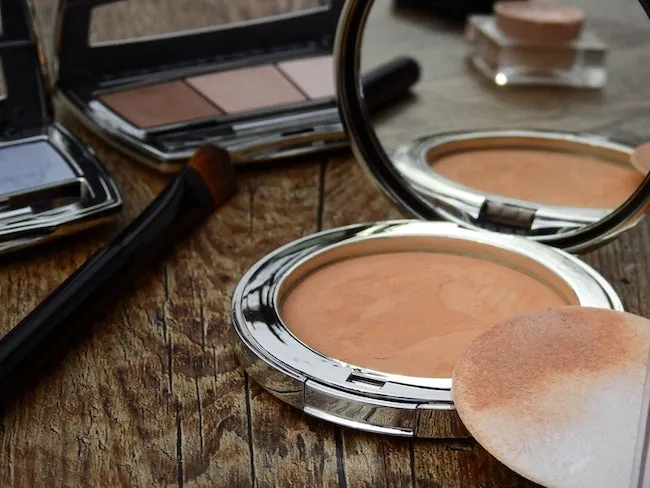
Body Sculpting Business: Do You Need a License?
How to start a body sculpting business, including legal requirements, how to get certified, and how to determine if you need a license for body sculpting.
How to start a body sculpting business, including legal requirements, how to get certified, and how to determine if you need a license for body sculpting.

The post-pandemic landscape had people of all ages looking more critically at their health. Aside from exercise and nutrition, many people emerged from lockdown feeling the crushing weight of stress and fear taking its toll on their bodies – and they could see it, too. More advancements in modern beauty technology have made it possible to make changes to our bodies without going under the knife. While minimally invasive procedures can’t solve all of our problems, they can address certain issues to help us look and feel better about ourselves.
As a beauty business owner (or aspiring one), you’re no stranger to giving people the joy of looking the way they want to look. And it’s not too shabby for profits, either. In fact, according to GlossGenius business data, body treatment businesses active between January and July 2024 earned an average monthly appointment revenue of $4,212. However, that doesn’t mean you can just add CoolSculpting and laser treatments to your services list tomorrow.
This article will explore what you need to know about starting a body sculpting business, including any legal requirements, body contouring licenses you’ll need, and a guide on how to become a body contouring specialist.
What Are the Legal Requirements to Start a Body Sculpting Business?
Do you need a license for body sculpting? Not necessarily. Currently, there are no federal laws that regulate these minimally invasive practices. However, your exact legal body sculpting requirements will depend on your state and county regulations, as well as the treatments you intend to administer.
For example, to physically administer treatment in Florida (such as via microneedling or a radiofrequency device), you must have a “license to touch,” which permits practitioners to touch patients for therapeutic reasons. In New York, you need to file a permit for an Appearance Enhancement Business. For California, the California Body Contouring Practitioner Act mandates all practitioners acquire a special permit to meet legal body sculpting requirements – though, you’ll need the supervision of a licensed physician or medical professional to provide these services.
Additionally, your specific state may also require you to have certain insurance policies in place, and every business must adhere to FDA guidelines regarding equipment hygiene and safety.
[CTA_MODULE]
Do You Need Both Body Sculpting Certifications and Business Licenses?
While a body contouring license isn’t necessary to provide sculpting services, most states in the U.S. require some type of business license to operate – whether that’s a general business license, sales tax license, or an esthetician license. Licenses are legally required, and you can face serious consequences (such as big fines or even the loss of your business) if you don’t have the right ones in place.
Certifications, on the other hand, are typically a voluntary credential that prove you have undergone the necessary training to provide your advertised services. However, some states (like Arizona and California) mandate practitioners obtain specialized permits to practice, and these usually come with a fee. But even if they’re not a legal requirement where you intend to open up shop, they can give your body sculpting business legitimacy, building trust between you and your potential clients. Though most body sculpting procedures are minimally invasive, it helps to know the person wielding the big laser machine actually knows what they’re doing.

How to Get a Body Sculpting Certification in 4 Steps
If you’re still wondering how to become a body contouring specialist, we’ve got you covered. Here, we detail the necessary steps to getting certified for your body sculpting business.
1. Consider your specialty
Think about the procedures you’re most passionate about – fat reduction, skin tightening, muscle toning – as this may impact the type of certification you should get. For instance, some states consider laser-assisted fat reduction (a.k.a. laser lipo) a medical procedure, even though it’s not invasive. If that’s your bag, you’ll also have to factor in the time to obtain the right medical license.
2. Do your research
Do your research when it comes to training programs and esthetician schools (there is currently no national accrediting organization that specifically regulates body sculpting courses). Make sure the program covers your specialty, and that tuition or program fees are transparent. Some programs can cost thousands of dollars to enroll, so it’s worth it to check out any financial aid options or payment plans the program may offer.
3. Complete your courses
Once you’ve enrolled in your program of choice, complete your classes to obtain your certification. You’ll likely cover topics like safe equipment use, sanitation, anatomy, side effects, and post-treatment care. Depending on the training program, this can be done in-person or online, but you must complete the entire program to officially receive your certification.
4. Keep up with your permits
Once you’ve obtained your certifications and permits, take note of any associated renewal dates or fees. Some permits may only allow you to legally operate for one or two years before you have to pay to renew. If these permits expire while your business is in operation, you can get in big trouble with your state or local governing bodies – even open yourself up to lawsuits. It’s also important to stay up-to-date on any new FDA regulations that may impact the services you provide.
[CTA_MODULE]
How to Start Your Body Sculpting Business with the Adequate Legal Licenses
Starting a body sculpting business can be challenging, but with this guide at your side, we’re confident you can get up and running in no time:
1. Get your permits
Look up the local rules and regulations regarding your specialty to ensure you get the right certifications. If you plan on opening a home sculpting office, you might need a separate permit to operate a business from a residence. If you plan on providing services deemed ‘medical’ by your state, you’ll need a proper medical license. (If you don’t plan on administering these services yourself, you’ll have to set aside funds to keep a trained medical professional or licensed physician on your staff.)
Fill out your applications, obtain your permits, and pay for any associated fees to ensure you’re legally covered.
2. Get insured
Insurance requirements vary by state, but to operate a body sculpting business, you may need certain coverage like general liability, professional liability, and equipment insurance to cover repairs or replacements.
You should also set up consent forms to send to all customers. These forms prove you’ve fully informed clients about the procedure and its side effects, outcomes, and any risks involved. Intake forms can also note any current medical or health conditions of the client, so you can not only keep them safe, but further bolster your protection from liability.
3. Get your equipment
Body sculpting services often require specialized equipment, such as CoolSculpting devices, cellulite massagers, lasers, and electromagnetic energy tools. These machines can be expensive – many thousands of dollars, in fact – so make sure you have the financial resources to invest wisely.
Did you know GlossGenius Financing can get you up to $250,000 for your business needs?
4. Get out there!
Once you’ve obtained the right licenses, permits, and certifications (as mandated by your state), it’s time to market your business. Use social media channels to spread word of your services, set up a professional website, partner with local businesses, or try traditional advertising media such as bus stops or billboards to market your body sculpting business.
Streamline Your Body Sculpting Business with GlossGenius
The legal requirements to operate a body sculpting business may vary by state, but most practitioners will need some type of permit and/or business license to run their operations. In addition to following legal protocols, it’s always good to have certifications in place to boost your credibility and show clients you take their health and safety seriously.
GlossGenius can help you seamlessly run your body sculpting business. Our all-in-one platform offers several features to help you manage and grow your business. Get the capital you need to invest in your business with GlossGenius Financing, and analyze your profits with Finances. Our Online Booking tool also makes it easy to fill your schedule and collect appointment deposits to cut down on no-shows.
Try GlossGenius today and get a 14-day free trial!
Stripe Capital offers financing types that include loans and merchant cash advances. All financing applications are subject to review prior to approval. In the US, Stripe Capital loans are issued by Celtic Bank and YouLend provides Stripe Capital merchant cash advances.
.png)
.png)
Join Our Genius Newsletter
Get the latest articles, inspiring how-to’s, and educational workbooks delivered to your inbox.
Body Sculpting Business: Do You Need a License?
How to start a body sculpting business, including legal requirements, how to get certified, and how to determine if you need a license for body sculpting.


The post-pandemic landscape had people of all ages looking more critically at their health. Aside from exercise and nutrition, many people emerged from lockdown feeling the crushing weight of stress and fear taking its toll on their bodies – and they could see it, too. More advancements in modern beauty technology have made it possible to make changes to our bodies without going under the knife. While minimally invasive procedures can’t solve all of our problems, they can address certain issues to help us look and feel better about ourselves.
As a beauty business owner (or aspiring one), you’re no stranger to giving people the joy of looking the way they want to look. And it’s not too shabby for profits, either. In fact, according to GlossGenius business data, body treatment businesses active between January and July 2024 earned an average monthly appointment revenue of $4,212. However, that doesn’t mean you can just add CoolSculpting and laser treatments to your services list tomorrow.
This article will explore what you need to know about starting a body sculpting business, including any legal requirements, body contouring licenses you’ll need, and a guide on how to become a body contouring specialist.
What Are the Legal Requirements to Start a Body Sculpting Business?
Do you need a license for body sculpting? Not necessarily. Currently, there are no federal laws that regulate these minimally invasive practices. However, your exact legal body sculpting requirements will depend on your state and county regulations, as well as the treatments you intend to administer.
For example, to physically administer treatment in Florida (such as via microneedling or a radiofrequency device), you must have a “license to touch,” which permits practitioners to touch patients for therapeutic reasons. In New York, you need to file a permit for an Appearance Enhancement Business. For California, the California Body Contouring Practitioner Act mandates all practitioners acquire a special permit to meet legal body sculpting requirements – though, you’ll need the supervision of a licensed physician or medical professional to provide these services.
Additionally, your specific state may also require you to have certain insurance policies in place, and every business must adhere to FDA guidelines regarding equipment hygiene and safety.
[CTA_MODULE]
Do You Need Both Body Sculpting Certifications and Business Licenses?
While a body contouring license isn’t necessary to provide sculpting services, most states in the U.S. require some type of business license to operate – whether that’s a general business license, sales tax license, or an esthetician license. Licenses are legally required, and you can face serious consequences (such as big fines or even the loss of your business) if you don’t have the right ones in place.
Certifications, on the other hand, are typically a voluntary credential that prove you have undergone the necessary training to provide your advertised services. However, some states (like Arizona and California) mandate practitioners obtain specialized permits to practice, and these usually come with a fee. But even if they’re not a legal requirement where you intend to open up shop, they can give your body sculpting business legitimacy, building trust between you and your potential clients. Though most body sculpting procedures are minimally invasive, it helps to know the person wielding the big laser machine actually knows what they’re doing.

How to Get a Body Sculpting Certification in 4 Steps
If you’re still wondering how to become a body contouring specialist, we’ve got you covered. Here, we detail the necessary steps to getting certified for your body sculpting business.
1. Consider your specialty
Think about the procedures you’re most passionate about – fat reduction, skin tightening, muscle toning – as this may impact the type of certification you should get. For instance, some states consider laser-assisted fat reduction (a.k.a. laser lipo) a medical procedure, even though it’s not invasive. If that’s your bag, you’ll also have to factor in the time to obtain the right medical license.
2. Do your research
Do your research when it comes to training programs and esthetician schools (there is currently no national accrediting organization that specifically regulates body sculpting courses). Make sure the program covers your specialty, and that tuition or program fees are transparent. Some programs can cost thousands of dollars to enroll, so it’s worth it to check out any financial aid options or payment plans the program may offer.
3. Complete your courses
Once you’ve enrolled in your program of choice, complete your classes to obtain your certification. You’ll likely cover topics like safe equipment use, sanitation, anatomy, side effects, and post-treatment care. Depending on the training program, this can be done in-person or online, but you must complete the entire program to officially receive your certification.
4. Keep up with your permits
Once you’ve obtained your certifications and permits, take note of any associated renewal dates or fees. Some permits may only allow you to legally operate for one or two years before you have to pay to renew. If these permits expire while your business is in operation, you can get in big trouble with your state or local governing bodies – even open yourself up to lawsuits. It’s also important to stay up-to-date on any new FDA regulations that may impact the services you provide.
[CTA_MODULE]
How to Start Your Body Sculpting Business with the Adequate Legal Licenses
Starting a body sculpting business can be challenging, but with this guide at your side, we’re confident you can get up and running in no time:
1. Get your permits
Look up the local rules and regulations regarding your specialty to ensure you get the right certifications. If you plan on opening a home sculpting office, you might need a separate permit to operate a business from a residence. If you plan on providing services deemed ‘medical’ by your state, you’ll need a proper medical license. (If you don’t plan on administering these services yourself, you’ll have to set aside funds to keep a trained medical professional or licensed physician on your staff.)
Fill out your applications, obtain your permits, and pay for any associated fees to ensure you’re legally covered.
2. Get insured
Insurance requirements vary by state, but to operate a body sculpting business, you may need certain coverage like general liability, professional liability, and equipment insurance to cover repairs or replacements.
You should also set up consent forms to send to all customers. These forms prove you’ve fully informed clients about the procedure and its side effects, outcomes, and any risks involved. Intake forms can also note any current medical or health conditions of the client, so you can not only keep them safe, but further bolster your protection from liability.
3. Get your equipment
Body sculpting services often require specialized equipment, such as CoolSculpting devices, cellulite massagers, lasers, and electromagnetic energy tools. These machines can be expensive – many thousands of dollars, in fact – so make sure you have the financial resources to invest wisely.
Did you know GlossGenius Financing can get you up to $250,000 for your business needs?
4. Get out there!
Once you’ve obtained the right licenses, permits, and certifications (as mandated by your state), it’s time to market your business. Use social media channels to spread word of your services, set up a professional website, partner with local businesses, or try traditional advertising media such as bus stops or billboards to market your body sculpting business.
Streamline Your Body Sculpting Business with GlossGenius
The legal requirements to operate a body sculpting business may vary by state, but most practitioners will need some type of permit and/or business license to run their operations. In addition to following legal protocols, it’s always good to have certifications in place to boost your credibility and show clients you take their health and safety seriously.
GlossGenius can help you seamlessly run your body sculpting business. Our all-in-one platform offers several features to help you manage and grow your business. Get the capital you need to invest in your business with GlossGenius Financing, and analyze your profits with Finances. Our Online Booking tool also makes it easy to fill your schedule and collect appointment deposits to cut down on no-shows.
Try GlossGenius today and get a 14-day free trial!
Stripe Capital offers financing types that include loans and merchant cash advances. All financing applications are subject to review prior to approval. In the US, Stripe Capital loans are issued by Celtic Bank and YouLend provides Stripe Capital merchant cash advances.
Download Now
.png)
.png)
Join Our Genius Newsletter
Get the latest articles, inspiring how-to’s, and educational workbooks delivered to your inbox.





.webp)


